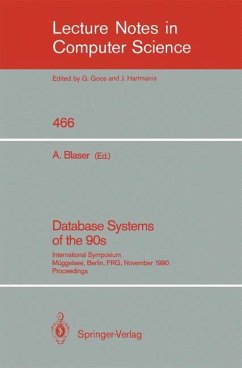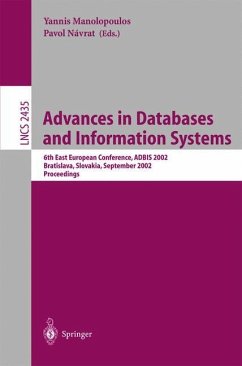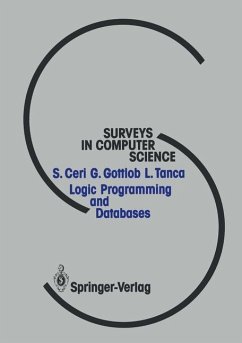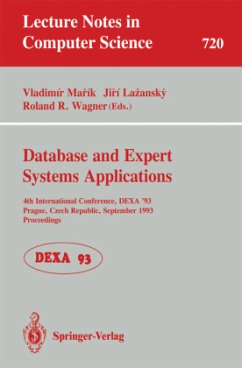
Foundations of Knowledge Base Management
Contributions from Logic, Databases, and Artificial Intelligence Applications
Herausgegeben von Schmidt, Joachim W.; Thanos, Costantino

PAYBACK Punkte
39 °P sammeln!
In the past, applied artificial intelligence systems were built with particular emphasis on general reasoning methods intended to function efficiently, even when only relatively little domain-specific knowledge was available. In other words, AI technology aimed at the processing of knowledge stored under comparatively general representation schemes. Nowadays, the focus has been redirected to the role played by specific and detailed knowledge, rather than to the reasoning methods themselves. Many new application systems are centered around knowledge bases, i. e. , they are based on large collec...
In the past, applied artificial intelligence systems were built with particular emphasis on general reasoning methods intended to function efficiently, even when only relatively little domain-specific knowledge was available. In other words, AI technology aimed at the processing of knowledge stored under comparatively general representation schemes. Nowadays, the focus has been redirected to the role played by specific and detailed knowledge, rather than to the reasoning methods themselves. Many new application systems are centered around knowledge bases, i. e. , they are based on large collections offacts, rules, and heuristics that cap ture knowledge about a specific domain of applications. Experience has shown that when used in combination with rich knowledge bases, even simple reasoning methods can be extremely effective in a wide variety of problem domains. Knowledge base construction and management will thus become the key factor in the development of viable knowledge-basedap plications. Knowledge Base Management Systems (KBMSs) are being proposed that provide user-friendly environments for the construction, retrieval, and manipUlation of large shared knowledge bases. In addition to deductive reasoning, KBMSs require operational characteristics such as concurrent access, integrity maintenance, error recovery, security, and perhaps distribution. For the development ofKBMSs, the need to integrate concepts and technologies from different areas, such as Artificial Intel ligence, Databases, and Logic, has been widely recognized. One of the central issues for KBMSs is the framework used for knowledge representation-semantic networks, frames, rules, and logics are proposed by the AI and logic communities.












